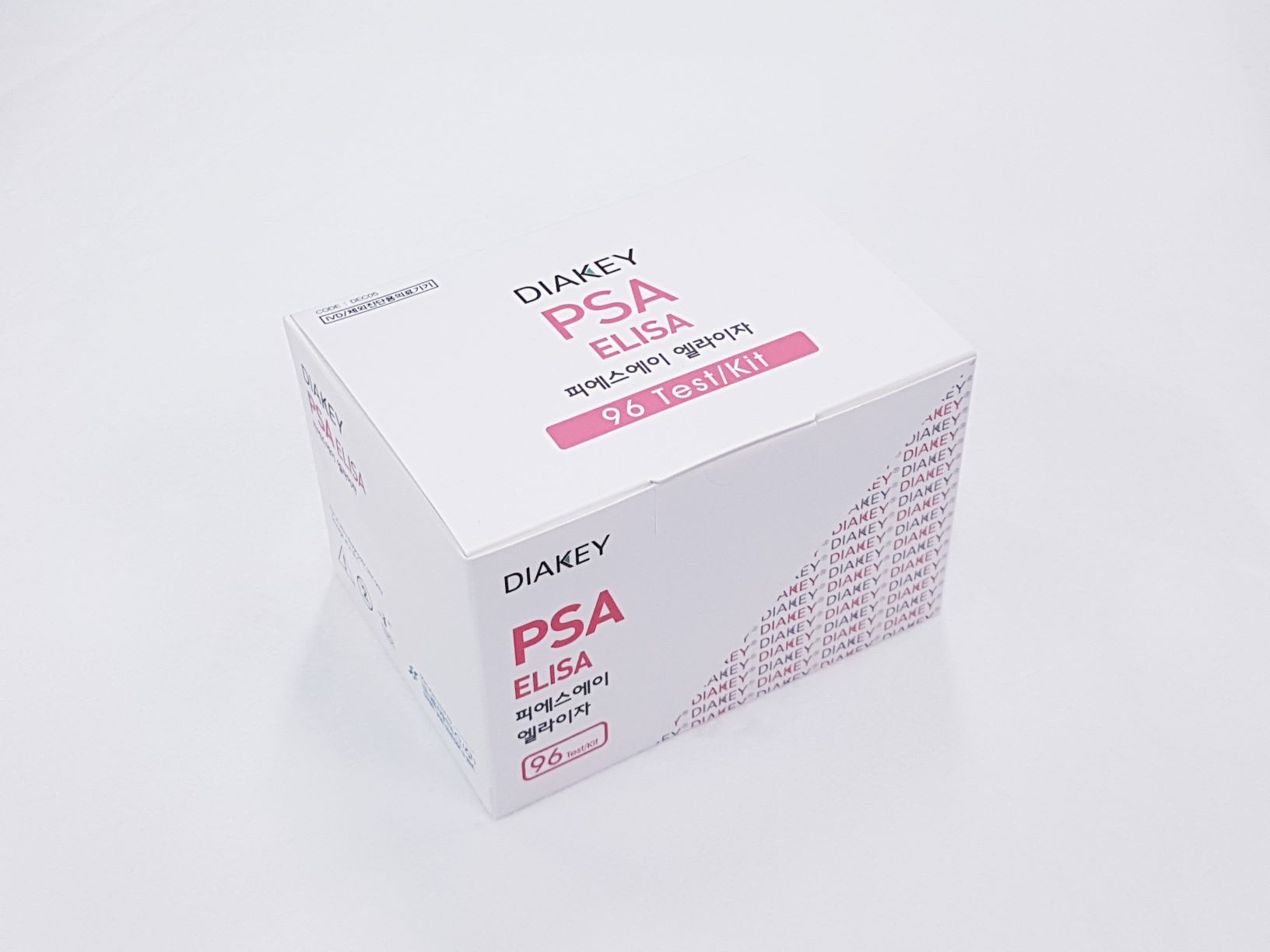Product

DIAKEY PSA ELISA
Intended Use
Enzyme immunometric assay for quantitative determination of prostate specific antigen (PSA) in human serum or plasma
Introduction
The prostate is a male sex gland. It produces a thick fluid that forms part of the semen. The prostate is about the size of a walnut. It is located below the bladder and in front of the rectum. The prostate surrounds the upper part of the urethra, the tube that empties urine from the bladder. The prostate needs male hormones to function. The main male hormone is testosterone, which is made mainly by the testicles. Some male hormones are produced in small amounts by the adrenal glands.
Principle of the Assay
The DIAKEY PSA ELISA is a solid-phase, non-competitive immunoassay based upon the sandwich technique. Two different monoclonal anti-PSA antibodies are used. One antibody is coated on solid phase (coated plate), the other, specific for the PSA and labeled with HRPO, is used as a conjugate. The conjugate antibody and the coated antibody react simultaneously with the PSA antigen present in the standards, control serum and samples. Unbounded material is removed by a washing step. After washing, substrate reagent is added to each well and the enzyme reaction is allowed to proceed. During the enzyme reaction a blue color will develop if antigen is present. The intensity of the color is proportional to the amount of PSA present in the samples. The color intensity is determined in a microplate spectrophotometer at 450nm (reference 620nm).
Handling Precaution
- Do not use mixed reagents from different lots.
- Do not use reagents beyond the expiration date.
- Use distilled water stored in clean container.
- Use an individual disposable tip for each sample and reagent, to prevent the possible cross-contamination among the samples.
- Rapidly dispense reagents during the assay, not to let wells dry out.
Use Precaution
- Wear disposable globes while handling the kit reagents and wash hands thoroughly afterwards.
- Do not pipette by mouth.
- Do not smoke, eat or drink in areas where specimens or kit reagents are handle.
- Handle samples, reagents and loboratory equipments used for assy with extreme care, as they may potentially contain infectious agents.
- When samples or reagents happen to be spilt, wash carefully with a 1% sodium hypochlorite solution.
- Dispose of this cleaning liquid and also such used washing cloth or tissue paper with care, as they may also contain infectious agents.
- Avoid microbial contamination when the reagent vial be eventually opend or the contents be handled.
- Use only for IN VITRO.

